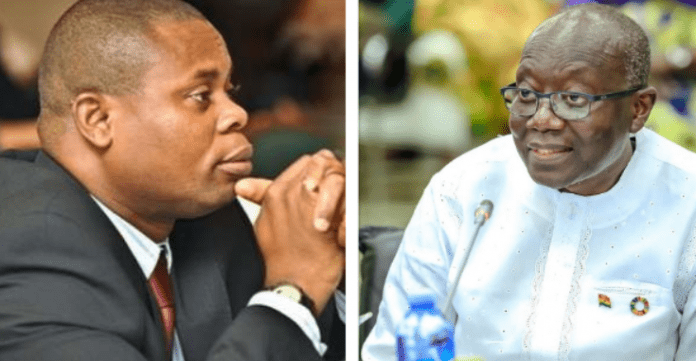Founding President of IMANI Africa, Franklin Cudjoe, has observed that the economy is recovering from the challenges it suffered in the past few years.
He noted that prices of locally produced rice are gradually being reduced.
In a Facebook post on Sunday, December 23, he said “From my previous post- As proof that targeting food inflation leads to an overall reduction in general inflation, food inflation has dropped from 55% in July to 32% in November, a 23% reduction.
“Consequently, the farmgate price of a 50kg bag of maize has reduced from GHS350.00 last year to GHS150 this year. Prices of locally produced rice are gradually being reduced. General inflation which reached a staggering height of 54% last year is now 26%. Looks like the new Agric Minister has been busy and deserves some accolades. We really need to continue on this path to redemption. Hopefully all the gains from our self-inflicted harm will not be reversed by the sprawling new taxes and election year spending.”
The inflation rate dropped to 26.4% in November 2023 from 35.2% recorded in October 2023, the Ghana Statistical Service (GSS) announced. According to the GSS, the major factor that contributed to the drop was food inflation.
Food inflation dropped by 12.6% to 32.2% in November, 2023. The month-on-month rate of food inflation was 0.8%. For non-food inflation, it also eased to 21.7%, as compared with 27.7% in October 2023. The month-on-month rate of non-food inflation stood at 2.2%. Five divisions recorded inflation rates higher than the national average.
They are Alcoholic Beverages, Tobacco and Narcotics (39.0%); Personal Care, Social Protection and Miscellaneous Goods and Services (35.4%); Food and Non-Alcoholic Beverages (32.2%); Furnishings, Household Equipment and Routine Household Maintenance (32.2%) and Restaurants and Accommodation Services (27.1%).
Following this, President Nana Addo Dankwa Akufo-Addo observed that the measures that were introduced to deal with the economic challenges, especially the partnership between the Bank of Ghana (BoG) and the International Monetary Fund (IMF), were yielding results.
For instance, he said in the area of inflation, it was clear that the rate was being contained.
“There is clear evidence that inflation is being contained. From 54 percent in December, 2022 to 26.4 per cent in November, 2023. We are also witnessing sustained stability of the exchange rate.
“The effective partnership between the BoG and the IMF under the terms of the government’s programme with the fund is yielding the right results.
“I am also encouraged by the many corporate governance measures put in place by the BoG to mitigate future bank failures and ensure that we have a strong banking sector to drive the agenda of transformation,” he said during the 2023 Bank of Ghana End of Year Cocktail on Thursday, December 14.
26.4% INFLATION: WE ARE VINDICATED THAT THE 54.1% RECORDED IN 2022 WAS JUST A BLIP – ADDISON
Also commenting on this, the Governor of the Bank of Ghana Dr Ernest Addison said that the central bank has been vindicated by the drastic drop in the rate. Dr Addison said that through effective collaboration with the Ministry of Finance, the Bank of Ghana has formulated monetary policies to keep the economy steady.
Speaking at the same event where the President spoke, Dr Addison said “The policy mix under the IMF-supported PC-PEG programme is gradually yielding positive results. From the peak of 54.1 percent in December 2022, headline inflation has declined to 35.2 percent in October 2023 and today, it has fallen to 26.4%.
“I kept on reminding people that inflation was at 12.7% in December 2021 and what we saw in 2022 should not be used to judge us. As you are aware there has been considerable noise from our detractors who have celebrated the high inflation recorded. Today, we are vindicated that inflation in 2022 was just a blip and we are quickly returning to where we were before the crisis.”


